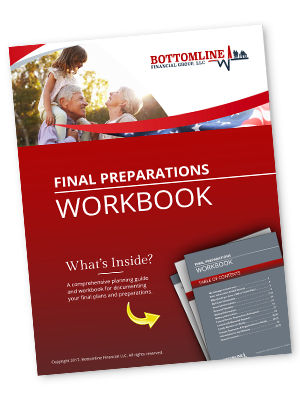
Keeping Financial Records Organized
A record-keeping system is a systematic approach to retaining and filing documents in a way that makes them easy to find when needed, even if it’s several years later. Record-keeping systems range from simple to elaborate and from basic to comprehensive. The ideal system is designed to fit your personal and family situation and lifestyle.
Some record keeping is mandatory; good record keeping is important
The most important thing to know about record keeping is that doing it well will save you a lot of time and money during your lifetime. Conversely, poor record keeping is sure to cost you in terms of money, time, and aggravation, perhaps dearly. For instance, assuming that you’ve been generally honest with the IRS, the only reason to fear a tax audit is that your records are incomplete or in disarray. If so, the IRS could find that you owe more tax than you paid. Insurance and legal claims frequently require supporting documents as well.
Record keeping is also important for estate planning purposes. After you pass away, your family and the executor of your estate will be grateful to find your records complete and in a meaningful order.
It is up to you to decide what your record-keeping system will include
The items you decide to retain in your record-keeping system will depend on several factors, including:
- Your personal and family situation
- The nature of your assets and investments
- Your household’s number and type of income sources
- Your tolerance for risk
- The time you’ll realistically devote to keeping records systematically
In addition to financial documents, you’ll probably want your system to retain other types of important documents, such as insurance policies; health and employment records; property titles; certificates of birth, death, and citizenship; and product and service guarantees. Today, it is also common to videotape personal property for potential use as evidence in an insurance claim.
Create a record-keeping system that works best for you
If throwing all your receipts, bills, and paycheck stubs into the proverbial shoe box until tax time is the best you can manage, then it will have to do. However, devising a systematic approach to retaining and filing your important documents will bring rewards you will appreciate in the future. If you can find little time for record keeping, then a simple system may be the answer. On the other hand, a more complex system that retains and files all potentially necessary documents on a weekly or monthly basis assures that when a need arises, you’ll be able to retrieve whatever you need promptly and without fuss. You might view this as pay now or pay later.
Accessibility and security should determine where you store records
It is usually best to store original documents that you must or want to protect from harm in a safety-deposit box, typically rented at your local bank. This provides important protection against fire and theft. Keep a reference copy of the documents in your more readily accessible files and note on them the location of the originals.
Older files that will likely require infrequent access can be stored in any relatively secure place provided that they will not be prone to damage or destruction. Files pertaining to the last 6 to 12 months should be readily accessible.
Never store your will in a safety-deposit box unless you’ve left a copy elsewhere or you lease the box jointly. Otherwise, the box may be sealed at the time of your death, leaving your spouse or executor searching for another copy.
For more information on how Bottomline Financial can help you, reach out to use for a free consultation.
Tags: financial organization, financial planning, financial records
Trackback from your site.
